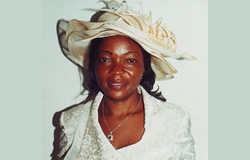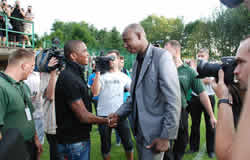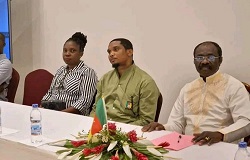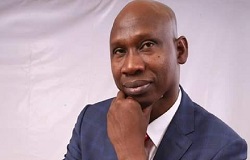Cameroun - Santé. Interview: “Veterinary Medicine Is A Lucrative Profession”

Dr Besong Laura, Inspector of Service Number 3, Ministry of Livestock, Fisheries and Animal Industries, MINEPIA, talks on the challenges of being a female Veterinary Doctor in Cameroon.
ADS
How did you become a Veterinary Doctor?
I became a Veterinary Doctor by Divine providence. I wanted to be a Medical Doctor, but because we had no counseling, I did not know how to go about it. As a result, I wasted almost three years after the GCE Advanced Level certificate trying to get into Medical School. The competition for admission to Medicine for foreign students was very stiff in the University of Ibadan, Nigeria. I was offered admission in Dentistry, but I turned it down. Finally, I went in for Veterinary Medicine.
After the orientation programme by a renowned Professor of Veterinary Anatomy, I saw the openings in the profession and developed liking for it. I eventually completed my Doctor of Veterinary Medicine degree in February 1997 due to the student strikes then. I am also holder of a Master’s degree in International Animal Health, with specialty in Epidemiology, from the University of Edinburgh, UK. I did a Post-graduate Diploma in Veterinary Communication and Extension with the University of Pretoria, South Africa.
After years of practice, would you say you are fulfilled?
I am fulfilled to some extent. When I treat someone’s animal, help a farmer to overcome a problem on their farm or I teach them something new which helps to boost production, I feel fulfilled. I find joy in carrying out veterinary public health activities. However, there are times I feel frustrated as it’s not easy to be a woman in a man’s world. I have not been able to practise a tenth of what I learnt in school. And this is not fulfilling at all.
What does it take to become a Veterinary Doctor?
It takes hard work and discipline to make it. When taught properly, Veterinary Medicine is one of the most voluminous and difficult courses in the sciences. As there is a wide variety of animal species, so also is the volume of work. We started 120 in my class in the first year. By the second year, only 60 were left. At the end, only 35 graduated, including those we met on the way.
What are the challenges of being a female Veterinary Doctor?
As a woman in a male-dominated profession, the challenges are enormous. Being a wife, mother and career woman, is not easy. These are some of the constraints we face in our profession, especially when it comes to appointments to certain positions. Also, the absence of a career profile sometimes makes assertive female Veterinary Doctors to suffer in the hands of their male colleagues. Moreover, women are not always given the opportunity to demonstrate their knowhow. For example, they are sometimes not accepted by some farmers for religious and cultural reasons.
What advice would you give to young girls aspiring to become Veterinary Doctors?
My advice is that Veterinary Medicine is a lucrative profession they should not shy away from. There are very many openings in the profession. It is very challenging and demanding though, but with determination and focus, you will succeed. When we were in school, there were no special considerations for female students. We were told that a Veterinary Doctor is a Veterinary Doctor. We did what the boys did and most times, even better, though we were fewer.
ADS
ADS
ADS
ADS










